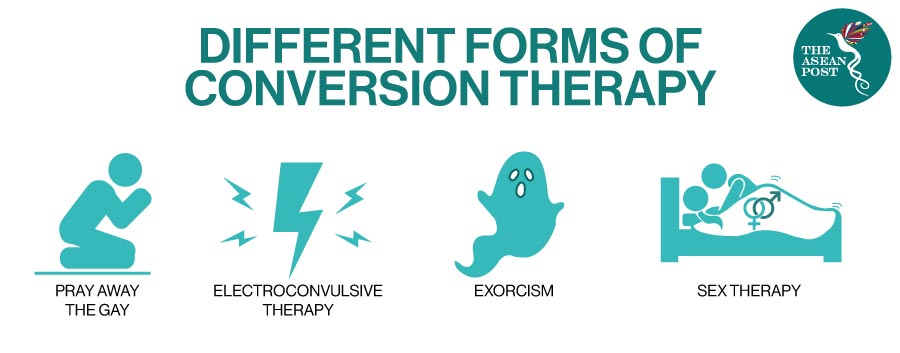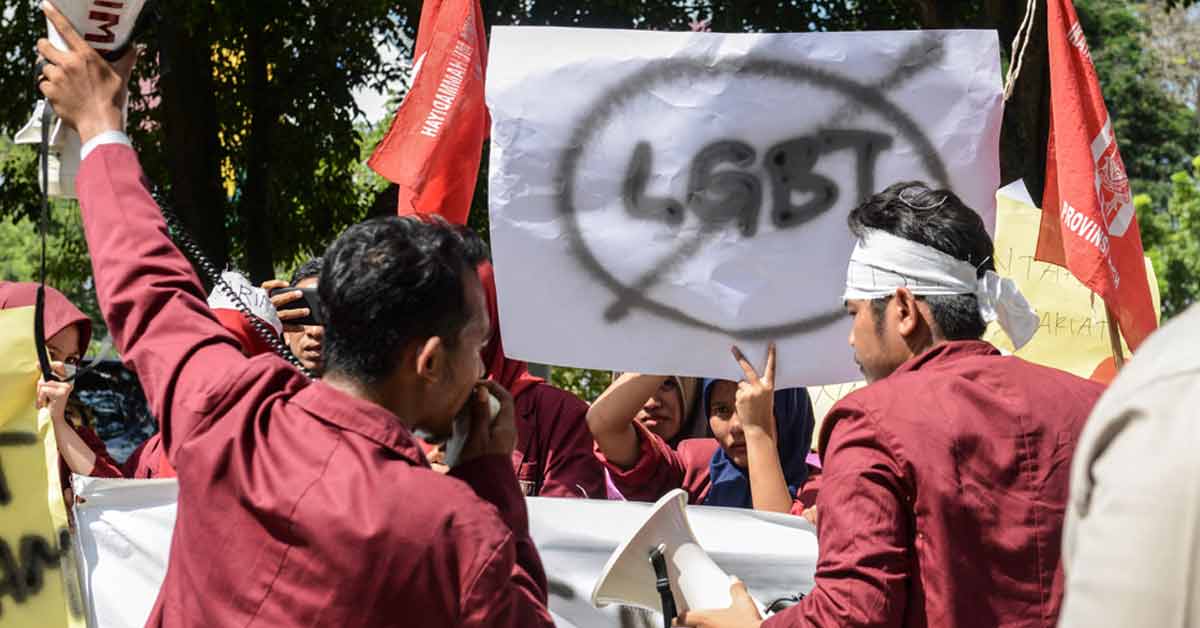Just last month, Kristen Antoinette Gray, an American tourist, and her girlfriend were deported from the Indonesian resort island of Bali after her tweet that celebrated the island as a low-cost and queer-friendly destination went viral. The couple had arrived in Bali in January 2020 and ended up staying through the COVID-19 pandemic. Gray shared her experiences online about living on the island and even posted a link to an e-book she had created which contained visa tips.
Gray’s posts were considered to have “disseminated information disturbing to the public,” which was the basis for her deportation. Her description of the island as a welcoming place for LGBT travellers was also among comments that Indonesian officials highlighted.
“I am not guilty. I have not overstayed my (tourist) visa. I am not making money in Indonesian rupiah. I put out a statement about LGBT and I am deported because of LGBT,” Gray told reporters.
Homosexuality is legal in Indonesia, except in Aceh province that was granted the right to practice Shariah law. Hindu-majority Bali is considered more open-minded than other parts of the archipelago. Nevertheless, LGBT Balinese do not enjoy the same privileges as visitors, said Arya from Gaya Dewata Foundation, a non-governmental organisation (NGO) that provides health and educational services for LGBT people.
“It is friendly here for LGBT tourists because they are here as tourists. The people in the tourism business will accept them whatever their sexuality, they will be served well,” he told local media.
“But we all have to understand the culture, and the local condition, and be careful with our actions to protect the local community. Not everyone here can express themselves that freely,” he added, referring to Gray’s case.
Conversion Therapy
The LGBT community faces widespread prejudice and lack legal rights in Indonesia. Moreover, the Indonesian Psychiatrists Association (PDSKJI) even classifies homosexuality, bisexuality and transsexualism as mental disorders that can be cured through proper treatment. This “proper treatment” can include conversion therapy.
According to the Office of the High Commissioner for Human Rights (OHCHR), conversion therapy is “used as an umbrella term to describe interventions of a wide-ranging nature, all of which have in common the belief that a person’s sexual orientation or gender identity can and should be changed.” It basically aims to change people from gay, lesbian or bisexual to heterosexual, and from trans and gender diverse to cisgender.
Last week, it was reported that a number of prominent Indonesian LGBT rights organisations and activists received a mysterious message on social media, saying that “it’s not too late to return to God. God has not left you. Indonesia is a Muslim country, and we reject all sins. Let us help you drive Satan out from inside of you and you can become normal again.” The message also included a link to a website offering conversion therapy services for LGBT people.
On the website, it stated that “gender identity and deviant sexual orientation” are “morally unacceptable and a threat to society and ideology in Indonesia.”
“What is best for Indonesia is to eradicate this unnatural LGBT behaviour,” the site reads.
It also noted exorcism, electroconvulsive therapy, sex therapy and prayers as part of their services.

“I was shocked and angry, especially after seeing the site’s content, which is crazy,” said LGBT activist Acep Gates who received the message through Instagram. He himself has undergone conversion therapy in the form of exorcism twice in his life, pressured by his religious family.
Hani Kumala, a psychologist from Atma Jaya University, also slammed the website and told local media that conversion therapy was pseudoscientific. “Forcing someone to see a psychologist without their consent is already a violation of human rights, let alone ‘corrective rape’,” she explained.
In February 2020, three lawmakers in Indonesia’s House of Representatives introduced a draft known as the “Family Resilience Bill.” The legislation would force LGBT Indonesians to undergo rehabilitation at a series of religiously-based treatment centres. If they do not readily submit to rehabilitation, their family members would have to report them.
This received widespread criticism from LGBT groups as if it is passed, the legislation would intensify “the mounting persecution and hate” faced by the community, and make them even more “vulnerable and isolated,” said Jessica Stern, executive director of rights group, OutRight Action International.
Conversion therapy is not exclusive to Indonesia, but is practiced in other parts of the world as well. According to a report by the International Rehabilitation Council for Torture Victims (IRCT), there is a wide-ranging set of practices that are used separately or together in conversion attempts. This includes psychotherapy, medication, force-feeding or food deprivation, corrective violence such as rape, and isolation, among others.
Conversion therapy is “likely to cause individuals significant or severe physical and mental pain and suffering with long-term harmful effects,” said the Independent Forensic Expert Group, as quoted in the IRCT report.
Related Articles:
